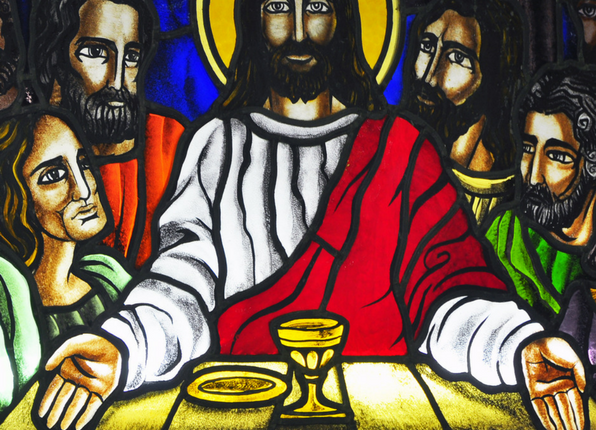“I am the living bread that came down from heaven.”
Jesus is our food. Whatever emptiness may be felt in our lives, he alone can fill it. If a vacuum exists anywhere in need of justice, peace, charity, compassion, understanding, forgiveness, or simple respect, Jesus is the missing element. The living bread from heaven is what sustains hope on this planet. God is with us. God’s life is offered to us. The unity of humanity and divinity expressed in Jesus is the model of the oneness we seek as Church. It’s a high standard, but only high standards are worth pursuing.
When we speak of Jesus as food, we naturally tend to focus on the elements of our Eucharist. The unity of God-with-us begins there, but it can’t end at the Lord’s Table. If God-life is in us, then it must be knit to our blood and bone, to our actions and decisions, to our yearnings and relationships. Unity means unity. There can be no corner of our lives we reserve for selfish motives and bitter resentments. If we come to this Table, we’re asking for unqualified unity with the life of God. Is this really what we want?
How much of your life belongs to God, and how much do you reserve for other, perhaps conflicting or contradictory objectives?
(Reflection and questions by Alice Camille in Exploring the Sunday Readings)
Since the Sunday Gospel is the heart of the Gospel Weeklies, an important part of preparing to share the Gospel with children is to read and reflect on it in advance of your class session. The Gospel at Home and the Gospel for All Ages (see Gathering Rituals/Questions) are resources on our website that can help you do this. While these resources take a break in the summer months, we’ll be drawing our weekly reflections from Exploring the Sunday Readings.
Image credit: Antonio V. Oquias/Shutterstock













